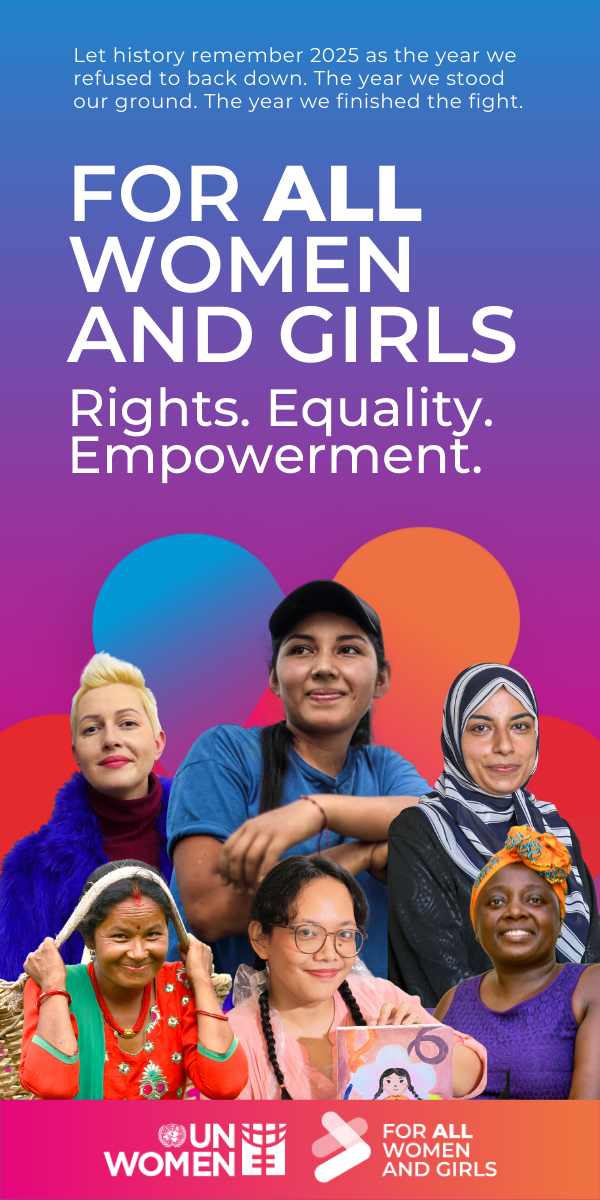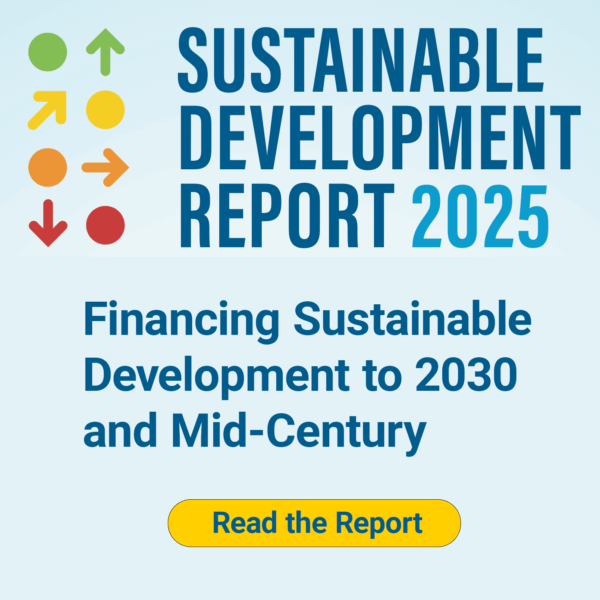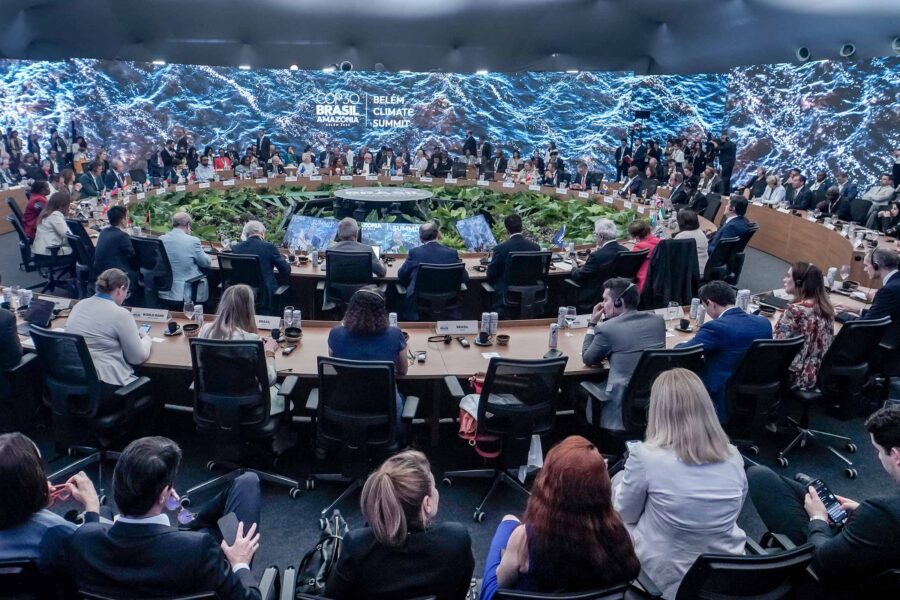Tackling illicit financial flows
Recent attempts to place sanctions on Russia illustrate how easily illicit financial flows are concealed on a massive scale. With trillions diverted from critical development projects each year, jeopardizing many of the SDGs, the world has an urgent and moral duty to expose and stanch the movement of these ill-gotten gains
Financing — Global

The recent invasion of Ukraine has resulted in unprecedented multilateral sanctions on Russia, and a global effort to freeze and seize assets belonging to sanctioned actors. Never before has a G20 economy been subject to such sweeping measures.
But this process has also underscored what people who study financial crime have long understood: illicit financial flows (IFFs) are easy to conceal and invest in desirable assets such as mansions, yachts, and art, and the richer the bad actor, the easier this subterfuge gets.
The truth is that corrupt actors, especially those who are smart enough to foresee that their conduct may someday trigger sanctions, tend not to hold or move assets in their own name. Instead, they employ complex and multi-jurisdictional networks of legal entities to obscure their true ownership. Consequently, even when significant resources are devoted to tracking IFFs and corresponding assets (as they currently are with respect to Kremlin officials and their cronies), the governments and private sector institutions on the frontlines face an uphill battle.
Simply put: you cannot freeze (let alone seize and repatriate) what you cannot find. But the good news is that policymakers are finally waking up to the urgency of addressing this problem. The crisis in Ukraine presents a rare opportunity to enact new measures which might not stop IFFs entirely, but which can curb them dramatically.
It is well established that IFFs are a major impediment to development. The inclusion of IFFs in Goal 16 of the 2030 Agenda marked an important acknowledgement of the scale of the problem. IFFs can be difficult to quantify, both because of a lack of consensus as to what constitutes “illicit,” and because they are secret by design, and, as such, resistant to measurement.
The United Nations defines IFFs as “financial flows that are illicit in origin, transfer or use; that reflect an exchange of value instead of purely financial transactions; and that cross country borders.” In a 2020 report, the UN Conference on Trade and Development (UNCTAD) estimated that USD 88.6 billion leaves Africa annually through IFFs, amounting to nearly half the USD 200 billion financing gap the continent must overcome to meet its Sustainable Development Goals (SDGs).
Clearly, IFFs pose a massive barrier to progress on the remaining SDGs. IFFs are linked to poverty, gender inequality, climate change, mass migration, reduced health spending, environmental degradation, regional instability, and insecurity – all topics covered by the SDGs.
Just consider the improvements that could be achieved if even a fraction of those funds were devoted to addressing these issues. Imagine how much more impact foreign aid and investment might have if close to USD 90 billion was not siphoned out of Africa every year. A 2021 report from the NGO coalition Le Congo N’est Pas A Vendre (Congo is Not for Sale) estimated that the Democratic Republic of the Congo (DRC) lost USD 1.95 billion from “suspicious” mining and oil deals with a billionaire middleman sanctioned by the US government for corrupt deals in the DRC. That amount of money could have funded the construction of over 10,000 schools. While sub-Saharan Africa is perhaps most negatively impacted by IFFs, according to a 2017 study by Global Financial Integrity, this is a global phenomenon, with IFFs from developing and emerging economies estimated at USD 1 trillion in 2014. In a similar vein, the United Nations estimated that the figure developing countries lose to corruption, bribery, theft, and tax evasion could be as much as USD 1.26 trillion per year.
But what can be done to tackle this trillion-dollar problem? Strengthening anti-money laundering and anti-corruption frameworks and institutions in developing nations is only part of the solution. IFFs need somewhere to go: it is incumbent on developed countries to stop offering such an attractive destination for illicit funds. Specifically, jurisdictions – like the US, EU, UK, and Switzerland – should stop enabling the secrecy industry that allows dirty money to flow undetected out of developing countries and through a web of offshore companies and into their own economies.
Tackling anonymity
The first critical step in this effort is tackling anonymity in corporate ownership. Anonymous shell companies are a favorite tool for illicit actors to move money and evade scrutiny from law enforcement and financial institutions’ compliance departments. The structures of corporate opacity pose a major obstacle to anyone seeking to investigate, freeze, or recover assets linked to IFFs. The world’s anti-money laundering standard setter, the Financial Action Task Force (FATF), recently took an important step in the right direction. It strengthened beneficial ownership standards (Recommendation 24) and stipulated that countries should require beneficial ownership information to be held in a registry or “an alternative mechanism” that allows authorities to “rapidly and efficiently” access “adequate, accurate and up-to-date” beneficial ownership information. The UK, which for decades has been a favorite destination for foreign billionaires looking to invest in high-end real estate, was prompted by the Ukraine crisis to finally move forward with a registry of foreign-owned real properties. There is also a plan to revamp Companies House – the central registrar for UK companies – enhancing its role from a passive recipient of (often erroneous) information to a gatekeeper and watchdog, with the power to investigate.
Washington DC, meanwhile, is inching toward final rules implementing the Corporate Transparency Act (2021). The act goes a long way towards eliminating abuse of anonymous US shell companies by requiring the establishment of a corporate directory of beneficial owners. Though not available to the public, this directory would be accessible to law enforcement, national security officials, and other trusted partners. The EU has likewise joined this effort, with its Fifth Anti-Money Laundering Directive, setting a January 2020 deadline for member states to implement publicly accessible beneficial ownership registries (though significant gaps in implementation remain). Most recently, the newly elected Labor government in Australia announced plans to implement a public beneficial ownership registry. Even though most jurisdictions have not yet implemented central or public registers, these recent efforts to close the loophole should leave bad actors with fewer reliable safe harbors for their ill-gotten gains. Governments should move swiftly to implement meaningful beneficial ownership reporting frameworks, and national-level legislatures should adequately equip the financial intelligence units or other policymaking bodies to get it done.
Targeting the enablers
There is a second necessary priority: targeting the enablers of corruption. Secrecy is a big business, and as leaks like the Pandora Papers have illustrated, there is a professional class of sophisticated service providers who are complicit in concealing IFFs. These are the accountants, attorneys, real estate agents, corporate service providers, and investment advisers who for a fee will set up the complex layers of shell companies, trusts, and nominee arrangements – the whole elaborate corporate architecture of obfuscation that is designed to frustrate the efforts of even the best-resourced law enforcement agencies.
In a telling move, in April the Biden Administration proposed extending the statute of limitations for money laundering prosecutions for foreign crimes from 5 to 10 years “because sophisticated criminals use intricate schemes that may cut across multiple jurisdictions.” Yet, the US – the world’s largest economy and a key destination for IFFs – has historically exempted these professionals from anti-money laundering obligations. With such a significant shortcoming, it is unsurprising that in May the US assumed the top spot on the Financial Secrecy Index, earning the dubious distinction as the most secretive financial jurisdiction on the planet. But this poor track record is hopefully about to change with new legislation tabled in Congress, the implementation of certain laws, proposed new anti-money laundering regulations for real estate transactions, and an acknowledgement in the US Strategy on Countering Corruption that Washington needs to deal with its own regulatory shortcomings. To be coherent in its anti-money laundering posture, the US must ensure that these gatekeepers to the financial system – like their financial institution counterparts – have an obligation to ask their clients about the sources of their wealth.
Exerting pressure
Third, the muscular exertion of financial pressure should also be part of the equation. Jurisdictions are increasingly adopting sanctions regimes that target individuals and entities involved in corruption (a major source of IFFs). Such sanctions work best when deployed in a network fashion, focusing on an entire web of companies as well as those entities and individuals that facilitate IFFs. However, sanctions are rarely used to target the professional class of enablers that hide behind a veneer of white-collar respectability. Pressure on such professional facilitators could have a significant impact on the secrecy industry. These gatekeepers are motivated by money rather than politics or ideology. If they are forced to factor potential sanctions – and loss of access to the global financial system – into the cost–benefit analysis, they may conclude that it is no longer worth it to service a corrupt or criminal clientele.
Finally, more should be done to empower and incentivize the private sector in the fight against IFFs. This would have the added benefit of not only reducing IFFs but increasing responsible investment that can spur development toward the attainment of the SDGs. Governments need to provide private sector actors with the information required to navigate the risks of doing business in countries suffering from corruption and other illicit activity so that they do not inadvertently exacerbate IFFs. This could be done through public business advisories that focus on IFFs in particular countries or regions. The more information the private sector has on how to conduct business responsibly, the less likely it is to leave or “de-risk” an entire jurisdiction. For their part, the private sector actors could be required (or encouraged) to report on the steps they have taken to invest responsibly.
IFFs are a vexing problem for which there is no single solution. What is needed is a concerted, multipronged global effort. This is a historic opportunity for change, given unprecedented public attention on this issue and with many destination countries for IFFs finally focused on cleaning up their own backyards. Even a small reduction in IFFs from developing countries could mean a dramatic improvement in available resources to meet the SDGs. Globally, a long-overdue paradigm shift to greater transparency and accountability in the financial sector would mean that illicit assets are more likely to be identified, traced, frozen, and confiscated – and returned to the people that need them most.






